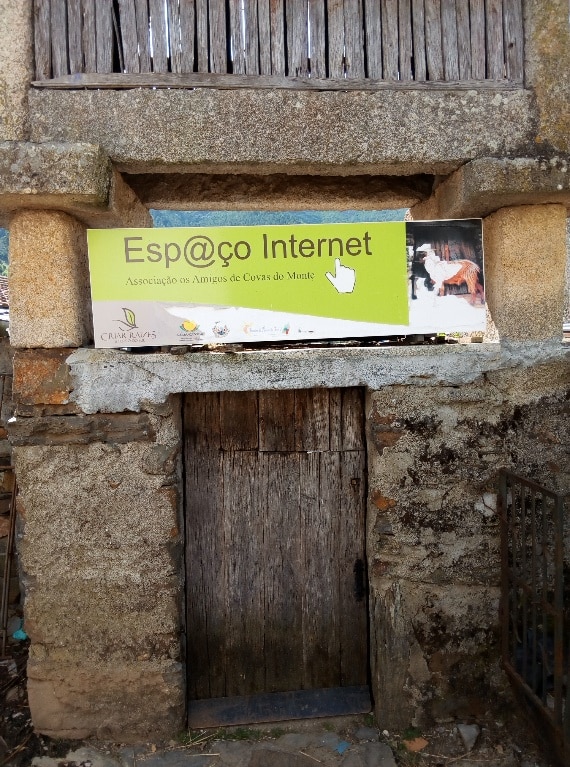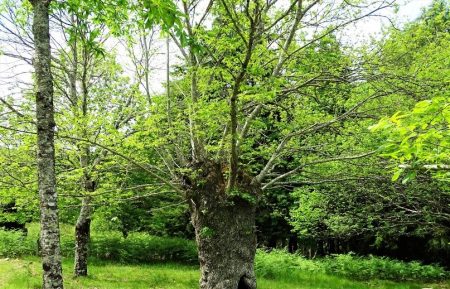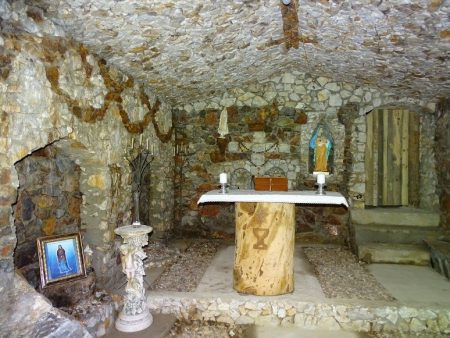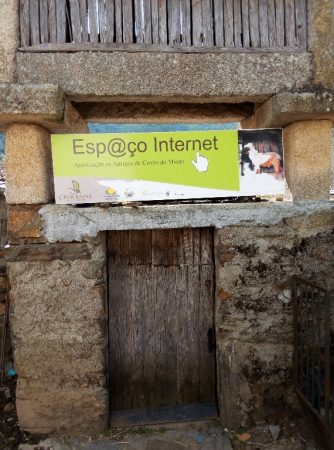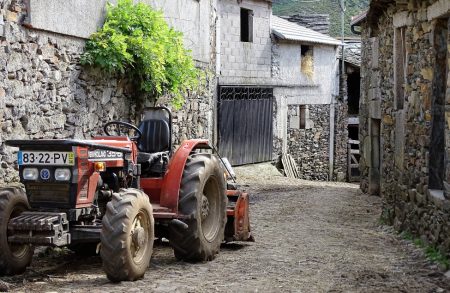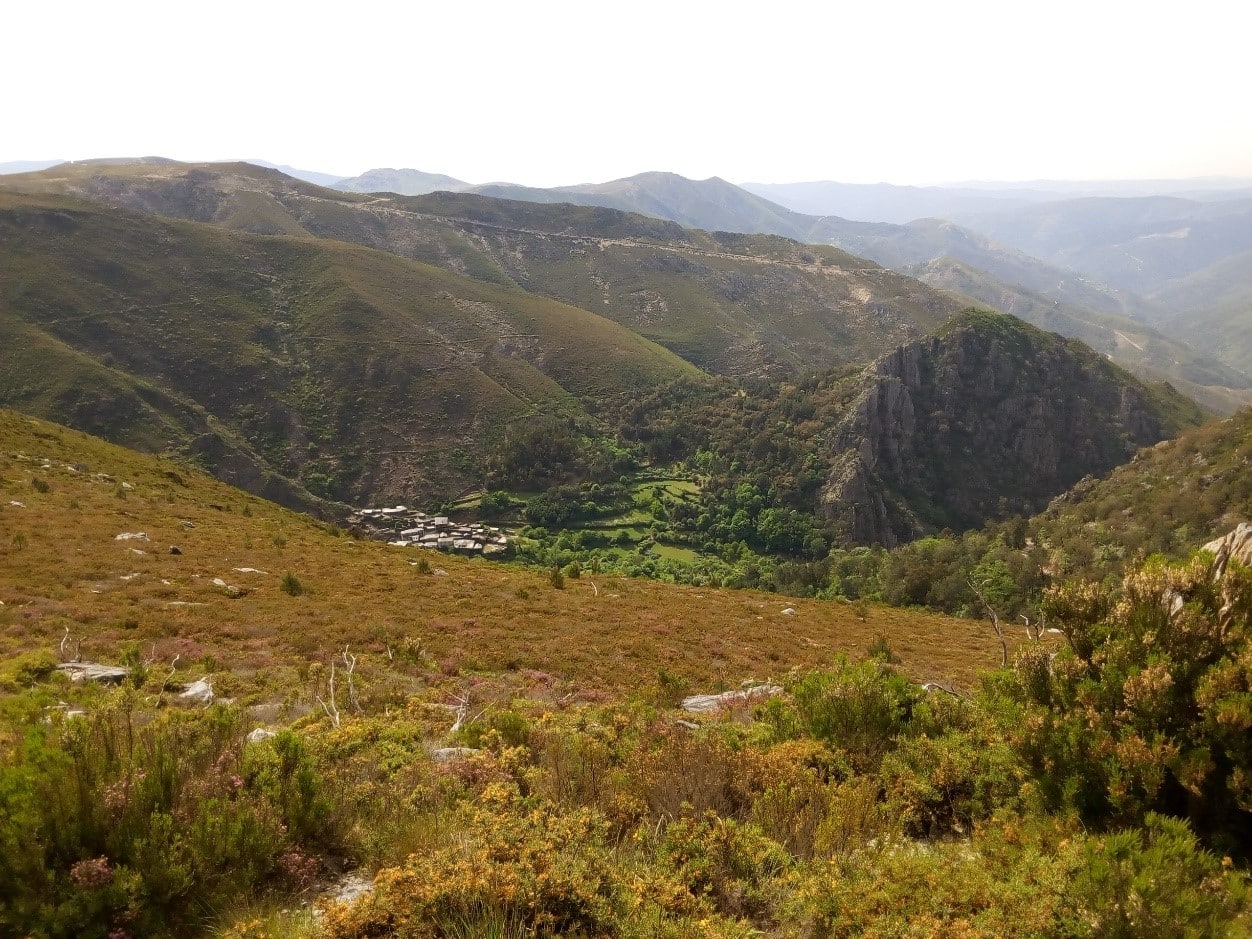
About a month ago I went to visit the rural area around Sao Pedro do Sul Municipality, about a couple of hours to the interior from Aveiro, Portugal. I went with the research team that is working on the Resilient Places Work Package within SUSPLACE. Within this package my research topic is to explore innovative ideas in order to enhance the use of local resources and local practices through place-based approaches. In more focus I would like to look at products such as agricultural products or crafts, and also landscapes for potential tourism. The main idea was to have a hint of what the area constitutes of in terms of natural and social resources (although in an afternoon I could only have a glimpse) and most importantly to meet Luís Costa. Luís is one of the founders of Binaural Nodar which is a Portuguese non-profit cultural organization founded in 2004 that works in the “…areas of sound and multimedia arts, anthropological documentation of rural cultural heritage, sound education, works for radio and publications particularly through its activities in the rural areas of Nodar and the Gralheira Mountain Range”(taken from their website). By being an intermediary between rural communities, artists, press and researchers the organization tries to kindle inspiration and cultural exchange through rural connections to nature and rural ways of living.
Furthermore, Luís has started a work on creating a network of remote villages in order to further a development model that considers indigenous culture together with local resources, both in the natural, rural and social. These resources have priceless value in themselves, but can further be explored for creating some economic developments for the rural communities, through local food products, landscapes, crafts and festivals, just to name a few. This is where I will be able to collaborate and be an active part of the project and the rural communities.
After we had met Luís and had our lunch, we drove to a small restaurant called “Salva Almas” near the village of Macieira. It is a particular example of a place-based activity where José, an 85 years old autodidactic architect and masonry worker, decided to build a restaurant away from the main village and near a beautiful forest. He also built a peculiar chapel under the restaurant, where tourists can come and see. Both the restaurant and the chapel are made completely with local stonework.
Afterwards we took a ride through the nearby countryside and Luís took us to see the valley where the Pena village is located. The village is inhabited by only 2 families and the remaining houses are mostly used for renting to tourists that want to experience remoteness and rural way of life. We didn’t go down to the village, but from the top of the valley we could see and appreciate the surrounding landscapes and have a feeling of the isolation of this village.
We then continued our road trip and stopped in another village called Covas do Monte. From the top of the valley we could see how this village had some successful agricultural converted land and bee hives for honey production. Luís also mentioned that the area has a high number of goat herders. After descending the valley, we explored the village a bit by foot, as accessibility by car was difficult due to the small intricate cobble roads. We were greeted by a couple of cows eating straw and by an internet shop sign in a Espigueiro (a little house used as storage for cereals), although with no computers.
We then met Filipe, a local inhabitant that came back to live in the village after having lived in a city for some years. He explained the reasons for this choice to come back, such as having access to healthy food and social and natural connection, and also highlighted some hardships of living in rural areas with children, such as depopulation and lack of services (schools, health care, etc). Everything has its trade-offs, but for now he is happy with his choice. Unfortunately, we didn’t have much time to talk and get more interesting insights, but he did offer us some of his locally produced sweet wine!
These are just some of the few villages in the area, all with their own stories, communities, hopes, landscapes and resources and I am eager to further delve in to the research project and connect to the rural communities. Breathing fresh countryside air definitely revitalized me and made me further excited (if possible) about my project!

